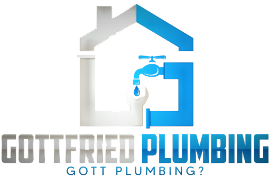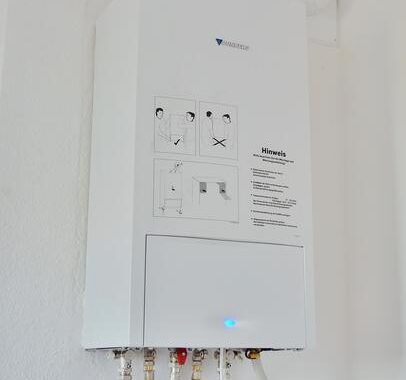Selecting the right water heater is a crucial decision for any homeowner in Boerne, as it directly impacts your comfort, energy use, and long-term costs. Whether upgrading your system or building a new home, understanding the advantages and limitations of tank and tankless water heaters is essential. The best choice depends on various factors, including your household’s hot water needs, available space, and budget.
This guide will explore how to evaluate these factors, helping you decide which system is better suited for your home.
Understanding These Two Types of Water Heaters
Choosing the right water heater for your home starts with understanding the key differences between traditional tank water heaters and modern tankless systems. Each type offers unique benefits, making the decision dependent on your household needs, space, and budget.
Tank Water Heaters
Tank water heaters store hot water in a large insulated tank, which is continuously heated to ensure hot water is always available. They are widely used due to their lower initial cost and ability to provide hot water for larger households. However, they tend to take up more space and can lose energy over time through standby heat loss.
Tankless Water Heaters
Tankless water heaters, also known as on-demand units, heat water only when needed. They are more energy-efficient, save money over time, and take up significantly less space. While tankless units have a higher upfront cost, they offer a longer lifespan and can reduce energy bills by eliminating the need for constant heating. However, they may struggle to supply hot water for multiple fixtures simultaneously in larger homes.
Factors to Consider When Choosing Between Tank and Tankless Water Heaters
When selecting between a tank and tankless water heater, several factors come into play, such as your household size, energy efficiency, space availability, and budget. Understanding these key considerations will help you make the best choice for your home’s hot water needs.
1. Evaluate Your Household Size and Hot Water Demands
When choosing between a tank and tankless water heater, it’s crucial to consider your household size and hot water usage patterns. Larger families with multiple people using hot water simultaneously may benefit from a traditional tank water heater. They store a large volume of hot water, making it ideal for handling simultaneous demand across showers, dishwashers, and laundry.
On the other hand, smaller households or homes with less simultaneous hot water usage can save money and energy with a tankless water heater, as it heats water on demand. For homes with sequential usage—where family members take showers one after another—a tankless system can meet your needs efficiently without running out of hot water.
However, if your household has peak demand periods—such as mornings when multiple showers and appliances are used simultaneously—a tank water heater might be a better option due to its ability to handle higher simultaneous usage.
2. Compare the Energy Efficiency and Operating Costs of Water Heaters
Another crucial factor in choosing between a tank and tankless water heater is energy efficiency and the impact on long-term operating costs.
Tank Water Heaters
While tank water heaters are more affordable upfront, they tend to be less energy-efficient due to standby heat loss—constantly using energy to keep stored water heated. This can lead to higher utility bills, especially in households with fluctuating hot water usage. However, tank heaters may still be the better option for families with consistently high water demand to ensure a steady supply.
Tankless Water Heaters
Tankless units are more energy-efficient because they only heat water when needed, avoiding standby energy losses. This can result in significant savings on utility bills, particularly in smaller households or homes with lower daily hot water usage. Although the upfront cost is higher, the long-term energy savings and lower operating costs often make tankless systems a cost-effective choice over time.
3. Identify the Standby Energy Losses and Long-Term Savings of Water Heaters
One key factor that makes tankless water heaters more energy-efficient is the elimination of standby energy losses. Traditional tank water heaters continuously heat stored water, which can result in wasted energy as heat escapes to the surrounding environment.
On the other hand, tankless systems heat water only when needed, eliminating standby losses. Here’s how they save energy and contribute to long-term savings:
- No Standby Heat Loss: Without storing hot water, tankless models avoid constant energy consumption.
- Efficient Operation: Tankless systems only activate when hot water is required, ensuring no unnecessary energy usage.
- Long-Term Savings: Over time, the reduced energy consumption from not heating and reheating excess water can significantly lower utility bills.
According to Energy.gov, homes that use 41 gallons or less of hot water daily can experience 24%–34% more energy efficiency with tankless systems than conventional storage tanks. Even households with higher water usage can see 8%–14% efficiency gains.
4. Calculate the Upfront Costs of Tank and Tankless Water Heaters
The initial investment is a key factor to consider when selecting a water heater. The upfront costs for tank and tankless water heaters vary significantly and can impact your overall budget.
Tank Water Heaters
- Cost: $400 to $2,000 (excluding installation)
- Installation: Additional costs depending on location, size, and plumber rates
- Space Requirements: Requires ample space for the storage tank
- Lifespan: Typically lasts 10–15 years
Tank water heaters are generally more affordable upfront, making them a popular choice for homeowners with tighter budgets. However, they take up more space and have a shorter lifespan.
Tankless Water Heaters
- Cost: $500 to $2,300 depending on whether it uses gas or electricity. Gas models are the most expensive ones
- Installation: More expensive due to complex setup requirements
- Space Requirements: Compact, wall-mounted design saves space
Lifespan: Can last 20–30 years
5. Check the Available Space for Water Heaters
Tankless water heaters are compact and can be wall-mounted, making them ideal for homes with limited space, such as apartments or smaller installations. In contrast, traditional tank water heaters require more room due to their large storage tanks, typically needing a basement or utility room for installation. For homeowners looking to save space and maintain a neat living environment, tankless water heaters offer a more flexible and space-efficient solution.
6. Consider the Installation Costs of Tank and Tankless Water Heaters
Installation costs for tank and tankless water heaters can vary significantly, which often influences the decision between the two. Traditional tank water heaters tend to have lower upfront installation costs because the process is simpler, typically involving basic plumbing connections and minimal modifications to your home. This makes them more budget-friendly in terms of initial setup.
In contrast, tankless water heaters generally come with higher installation costs due to the complexity of the setup. Installing a tankless system may require more significant changes to your home’s infrastructure, such as:
- Upgrading existing gas lines
- Enhancements to electrical circuits
- Professional installation services
While tankless systems are more expensive to install, their long-term energy savings and space efficiency can offset these initial costs. It’s important to factor in the upfront expenses and potential long-term benefits when deciding.
7. Analyze the Lifespan and Maintenance Costs of Tank and Tankless Water Heaters
Tankless water heaters typically last longer, with an average lifespan of 15 to 20 years compared to 10 to 13 years for tank water heaters. This extended lifespan means fewer replacements over time, offering cost savings. Tankless systems also experience less wear and tear since they only heat water on demand and have fewer moving parts, reducing the risk of mechanical failures.
In terms of maintenance, tankless water heaters require less frequent upkeep, generally involving annual descaling to prevent mineral buildup. While repairs can be more expensive due to their complexity, the overall maintenance frequency is lower. Tank water heaters, on the other hand, require more frequent flushing to prevent sediment buildup and ensure efficiency. Although repairs are typically more straightforward and less costly, tank systems need more regular attention due to faster wear and tear.
Tank vs. Tankless Water Heaters: Making the Right Choice for Your Boerne Home
Choosing between a tank and tankless water heater ultimately depends on your household size, hot water usage patterns, available space, and budget. While traditional tank water heaters may be ideal for larger families with higher simultaneous water demands, tankless systems offer significant energy savings and space efficiency for smaller homes or those with sequential usage needs.
Whichever option you choose, it’s important to consider long-term costs, including installation, maintenance, and potential energy savings. Consulting with a professional can help you make the most informed decision for your needs.
At Gottfried Plumbing, we specialize in helping Boerne homeowners select and install the perfect water heater for their homes. Our team can guide you through the process, ensuring your new water heater fits your hot water demands, budget, and space. Contact us today at (830) 331-2055 for expert advice and professional installation services. Let us help you choose the best water heater for your home!


